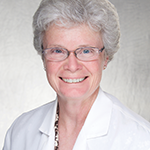However, in other cases, the partners may decide they can’t, or don’t want to, add to their own patient loads. In that case, preplanning for locum tenens or other options is imperative.
Insurance Is an Important Part
In unplanned transitions, insurance should be included. For solo doctors, disability and life insurance could make a big difference in their family’s financial security going forward.
“If an accident or sickness takes away your ability to see patients, that effectively ends the money machine,” says Lawrence B. Keller, CFP, certified financial planner practitioner and founder of Physician Financial Services in Woodbury, N.Y. “Unless you are among the fortunate few who don’t need the money, you need to protect your family by protecting the income that is generated by your ability to work.”
One of the suggestions is an own-occupation disability policy. If due to accident or injury you are unable to perform your duties as a rheumatologist, you would qualify for payments. This type of insurance has the added advantage of allowing you to work in any other profession and make as much money as possible without reducing the disability benefit.
Life insurance is also a consideration for the solo practitioner. Your practice’s insurance broker should be able to suggest policy limits for both kinds.
Work closely with both your insurance broker and your accountant. There are different kinds of coverage with different tax implications.
Start these discussions right away, & revisit succession plans at least annually.
Both smaller and larger practices may need to structure insurance to benefit the group in addition to the individual. For example, the practice may be the beneficiary of a life or disability insurance policy to provide funds for buying out a physician should the need arise.
In addition, smaller groups may want to consider adding coverage for fixed expenses associated with the practice in the event of an accident, disability or death.
“When there are a small number of doctors generating revenue, they are each going to be responsible for a certain percentage of the practice’s overhead,” says Mr. Keller. “A disability overhead policy covers up to 100% of a doctor’s share of these expenses.”
Succession by Retirement
Succession by retirement presents its own sets of concerns. You have to decide how quickly the exiting physician will leave and whether they want to retire entirely or work part time. The practice has to find, integrate and train a new physician. All of this takes time.



